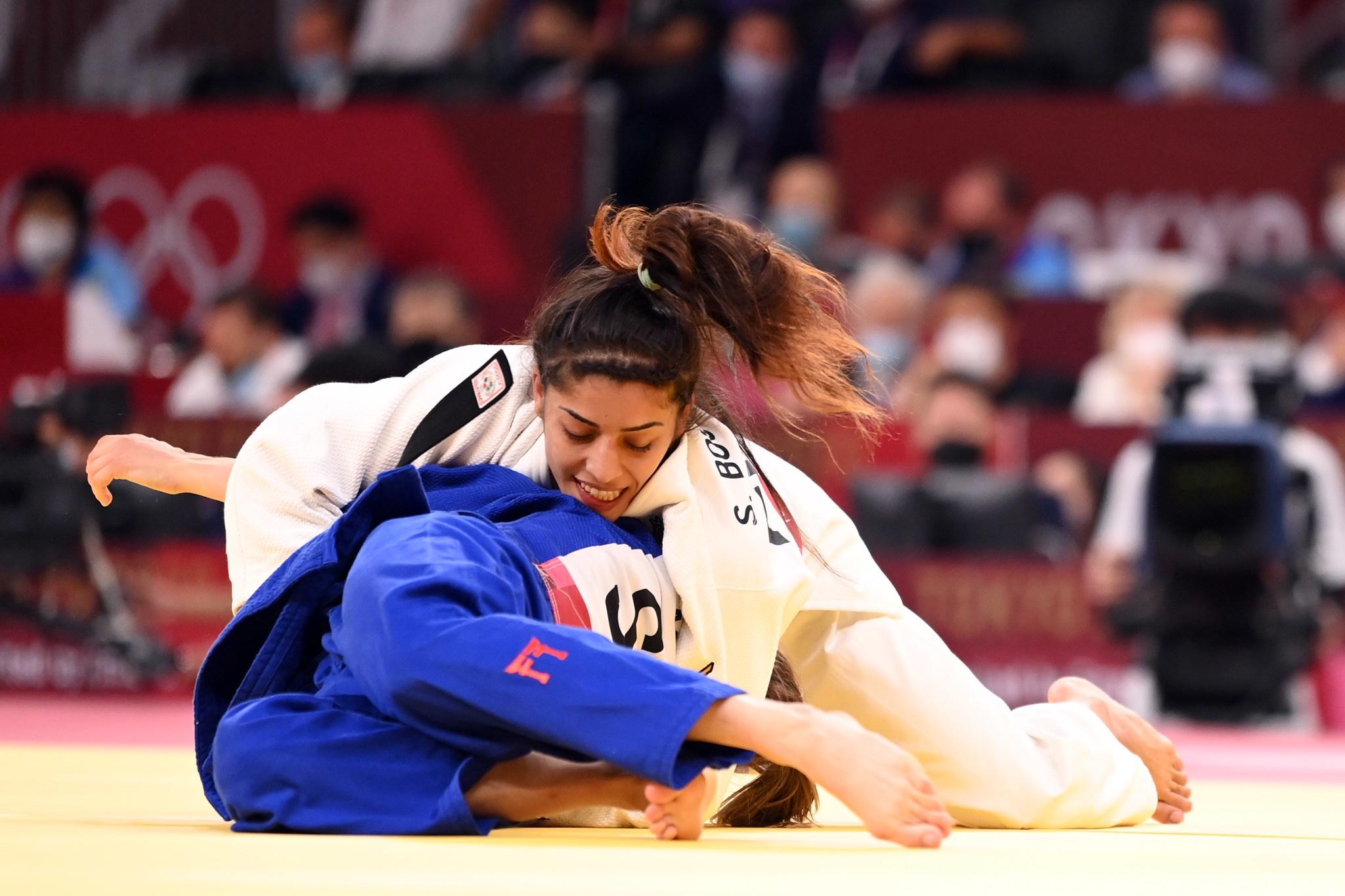Nothing is. Sports are however, universal.

No one is watching the Olympics this year and it isn’t fair.
Athletes have spent their entire lives training, sacrificing to achieve mastery of their sport. It is the only time many people will ever have a chance to see truly spectacular feats of physicality and athletic pinnacle.
And people can’t turn the channel fast enough.
It is a little like the time the world’s greatest violinist played the greatest violin music ever composed on the best violin ever cast by luthier-kind and no one came. Crowds of commuters, commuted on past while he played his heart out without a second glance.
Is it too many entertainment options? Is political polarization playing more than a passing role in the viewership decline of the Olympics?
Progressives don’t want to watch the Olympics; too much American exceptionalism. Conservatives don’t want to watch either; too much protesting of American exceptionalism.
Democrats want activist athlete Gwen Berry to medal, but not enough to chant “U.S.A!”. Republicans want the U.S.A. to win the gold, but not enough to root for Megan Rapinoe.
The Olympics aren’t fair, either. Far from it. It takes money to train and compete at that level. Athletic ability isn’t distributed equitably by any means, either. Which gives progressives another reason to watch something else.
The Olympics aren’t fair because life isn’t fair. Who told you it was? While Rep. Ilhan Omar (D-MN) may still be taking out her disappointment that real-life America isn’t like it is in the movies on the good constituents of Minnesota, most of us have always understood that no, Virginia; real life isn’t like it is in the movies.
The good guy doesn’t always win, injustice often goes unpunished, there is no hero coming to save the day, superpowers or no. No intrepid super-sleuth will be investigating the big mysteries of our time, giving us all nice neat answers. Neither Dirty Harry nor Batman will be cleaning up these mean streets anytime soon.
That isn’t to say real life doesn’t have its moments. Sometimes, as in the case of the famous Olympic “Miracle on Ice”, real life triumphs even make great movies.
Sports, and the Olympics in particular is one place where miracles seem to happen all the time. Unbeatable records are broken, old champions unseated, new champions rise, impossible times are achieved, new techniques debuted, panned, then adopted universally. Barriers are broken, including barriers we didn’t always know we had.
This year’s kerfuffle over one of America’s brightest Olympic stars, Simone Biles, dropping out of events to focus on her mental health, gave progressives a reason to talk about the Olympics, if not to watch them.
“Her floor routine might not be spectacular, but her coaches report that she is in excellent mental health and our research indicates the athlete is going through a tough time right now,” these authorities gushed. “So she wins all the gold medals.”
Only Olympic medals aren’t bestowed upon the most morally deserving, or even the ones who need it most.
If that were the case, Olympic medals would be given to athletes from countries which penalize sports failures most harshly and everyone else would go home.
For some athletes who have competed in the games over the years, defeat has meant dire consequences, even death at the hands of their government. This year, a Belarusian athlete refused to return home after criticizing her coaches and the government, saying the country is no longer safe for her.
Is that fair? Of course not. What can we do about it? Next to nothing, unless you like war.
What we can do, what America and other democratic nations have taken the opportunity to do during the Olympic games over the decades, is demonstrate by the excellence of our athletes that people in a free society will always outperform those who are compelled by force or coercion to compete.
In this vein, we have proven that a diverse society, such as ours, can produce athletes of such quality as to put any claims about a so-called superior race to shame forever, as Jesse Owens so famously did during the Olympic games in Germany in 1936.
The athletes performing at the games this year, or any given year, even the gold medal winners, aren’t giving the best performance of their lives. The best they most have ever performed was probably on one of their endless practice nights when they were completely relaxed and no was around.
On game day, anything can happen and it isn’t fair. A bad night’s sleep, food poisoning, an injury, anything can upset the delicate balance of peak performance. Something as small as a wardrobe malfunction at the wrong moment can cost someone who has trained all their lives, made tremendous sacrifices, everything. It’s heartbreaking.
Sports critics and olympic judges don’t award medals for being virtuous, having great mental health, good intentions, needing it most, or being the most deserving.
They are only going to judge one thing, the only thing they can judge: Performance.
For the thrill of performing in front of the judges, athletes from all over the world have spent some of the best years of their lives in training- for the challenge of competing against the best of best, from far flung nations to their nearest neighbors.
Sports, like music, is one of the few universal human languages we have. Athletes of almost any disparate background, whatever their differences, can play the same game, with the same rules, and meet in a spirit of fellowship and camaraderie.
When that happens, we all win. And that is about as close to a participation trophy as real-life ever gets.
(contributing writer, Brooke Bell)